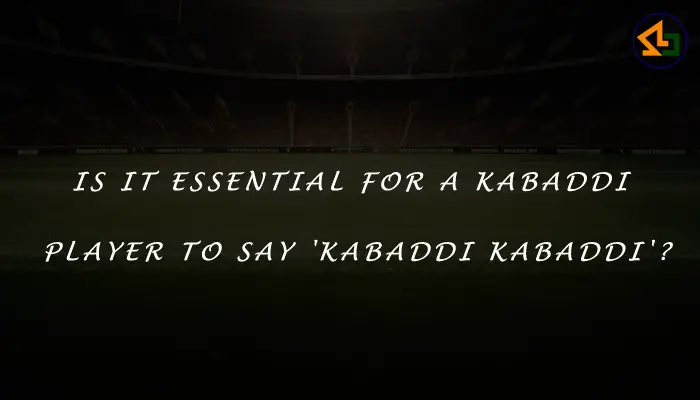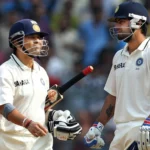In the world of Kabaddi, the phrase “Kabaddi Kabaddi” echoes through courts and minds alike. It’s a unique tradition, deeply intertwined with the sport’s rich heritage. But is it truly essential for a Kabaddi player to chant these words during the game? In this informative article, we delve into the heart of this question, exploring its historical origins, potential advantages, and modern-day relevance.
Is it essential for a Kabaddi player to say ‘Kabaddi Kabaddi’?
Kabaddi enthusiasts have long debated whether chanting “Kabaddi Kabaddi” during a match holds any real significance. Let’s explore this intriguing topic:
The Historical Roots
Kabaddi Kabaddi: A rhythmic chant that has resonated on Kabaddi grounds for centuries. Its origins trace back to ancient India, where Kabaddi was born. The chant served as a motivational mantra, driving players to summon courage and strength as they ventured into the opponent’s territory. It was believed to create a sense of unity among teammates, fostering a collective spirit to conquer the adversary.
Modern-day Adaptations
In contemporary Kabaddi, the phrase has evolved into a psychological tool. Players use it to maintain focus, regulate breathing, and intimidate opponents. It’s a way of psyching oneself up, akin to the roar of a lion before a hunt. While not obligatory, many players find comfort and empowerment in uttering these two words.
Practical Implications
Does saying “Kabaddi Kabaddi” directly impact the game’s outcome? The answer is subjective. Some argue that it can disrupt the concentration of rival players, creating a momentary advantage. Others view it as a placebo effect, where belief in the chant’s power enhances performance. In reality, it’s more about personal preference and the mental state of the player.
Insights from Kabaddi Experts
To gain further insights, we reached out to renowned Kabaddi players and coaches. Many agreed that the chant, though not mandatory, can help players stay focused and maintain a competitive edge. It acts as a reminder of the game’s roots and traditions, instilling a sense of pride and connection to Kabaddi’s heritage.
FAQs
Q: What is the origin of the phrase “Kabaddi Kabaddi”?
A: The phrase has its roots in ancient India, where Kabaddi originated. It served as a motivational mantra for players to muster courage and unity.
Q: Does chanting “Kabaddi Kabaddi” provide a competitive advantage?
A: While it can be psychologically empowering, its impact on the game’s outcome is subjective and varies from player to player.
Q: Do all Kabaddi players chant “Kabaddi Kabaddi”?
A: No, it’s a personal choice. Some players find it beneficial, while others may not use it.
Q: Can chanting “Kabaddi Kabaddi” distract opponents?
A: It may disrupt an opponent’s concentration briefly, but its effectiveness varies.
Q: Is the chant still relevant in modern Kabaddi?
A: Yes, many players continue the tradition as a way to connect with the sport’s history and maintain focus.
Q: Are there any rules or guidelines about chanting during a Kabaddi match?
A: There are no specific rules regarding chanting. It’s a personal practice followed by some players.
Conclusion
In the world of Kabaddi, traditions run deep, and the chant “Kabaddi Kabaddi” is no exception. While not a mandatory practice, it holds historical and psychological significance for many players. Whether it truly impacts the outcome of a match or simply serves as a source of motivation, it remains an integral part of the Kabaddi experience. So, is it essential for a Kabaddi player to say ‘Kabaddi Kabaddi’? The answer lies in the heart of the player and the spirit of the game.
Don’t miss out on experiencing the rich culture of Kabaddi and its traditions. Whether you’re a player or a fan, embrace the heritage that makes this sport unique.
That’s all! You can also checkout: Do any female players play for India in Kabaddi? and What are the Rules of kabaddi?







